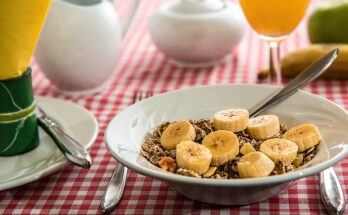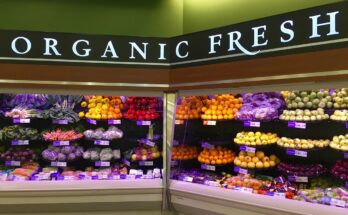Are you concerned about the nutritional value of the foods you eat? Well, you should be aware of how food processing can impact the nutrients in your meals. When it comes to food processing, there are various methods that can alter the nutritional content of the foods you consume. From canning and freezing to baking and frying, each method has its own effects on the nutrients present in the food.
Unfortunately, nutrient loss is a common consequence of food processing. Heat, light, and air exposure during processing can lead to the degradation of vitamins and minerals. Moreover, cooking itself can further reduce the nutritional value of your meals. But it’s not just cooking that affects the nutritional content; additives and preservatives used in processed foods can also have an impact.
However, there are strategies you can employ to maximize the nutritional value of processed foods. In this article, we will explore the various types of food processing methods, the nutrient loss that occurs during processing, the effects of cooking, and strategies for preserving and enhancing the nutritional value of processed foods.
Types of Food Processing Methods
Did you know that there are various types of food processing methods that can significantly affect the nutritional value of the food you eat? Food processing is a broad term that encompasses a range of techniques used to transform raw ingredients into edible products.
One common method is canning, which involves heating food in a sealed container to kill bacteria and extend its shelf life. However, this process can also lead to the loss of certain vitamins and minerals.
Another method is freezing, which can help preserve the nutritional content of food by slowing down the growth of bacteria. However, some nutrients may still be lost during the freezing process.
Other processing methods include drying, fermenting, and pasteurizing, each with their own impact on the nutritional value of the final product.
It’s important to be aware of these methods and make informed choices about the foods we consume.
Nutrient Loss During Processing
While undergoing processing, food often undergoes changes that can result in the loss of important nutrients. Many processing methods, such as heating, can cause nutrient loss. For example, vitamins like vitamin C and B vitamins are heat-sensitive and can be easily destroyed during cooking or pasteurization.
Additionally, the refining process used in the production of white flour and rice removes the nutrient-rich bran and germ, leaving behind a product that is lower in vitamins, minerals, and fiber.
Furthermore, processing methods like canning and freezing can also lead to nutrient loss. During canning, heat treatment can cause the degradation of heat-sensitive vitamins. Freezing can also cause some nutrient loss, although it is generally less significant compared to other processing methods.
Overall, it is important to be aware of the potential nutrient loss that can occur during food processing and to choose minimally processed foods whenever possible.
Effects of Cooking on Nutritional Value
To truly maximize the nourishment you gain from your meals, consider the transformative power of cooking. Cooking can have both positive and negative effects on the nutritional value of food.
On one hand, cooking can enhance the availability of certain nutrients, making them easier for your body to absorb. For example, heat can break down the tough cell walls of plants, releasing more nutrients like vitamins and minerals. Additionally, cooking can destroy harmful bacteria and parasites that may be present in raw food.
However, cooking can also lead to nutrient loss. Certain vitamins, such as vitamin C and B vitamins, are sensitive to heat and can be destroyed during the cooking process. To minimize nutrient loss, it’s important to cook food at the right temperature and for the right amount of time.
Additives and Preservatives in Processed Foods
If you want to get the most out of your meals, it’s important to be aware of the additives and preservatives found in processed foods. While these ingredients are added to enhance taste, texture, and shelf life, they can have a negative impact on the nutritional value of the food.
Additives like artificial sweeteners, flavor enhancers, and food colorings may contribute to health issues such as allergies, hyperactivity, and even cancer. Preservatives like sodium benzoate and BHA/BHT are used to prevent spoilage, but they have been linked to respiratory issues and hormonal disruptions.
Additionally, many processed foods are high in sodium, which can lead to high blood pressure and heart disease. To make healthier choices, opt for whole, unprocessed foods and read labels carefully to avoid harmful additives and preservatives.
Strategies for Maximizing Nutritional Value in Processed Foods
One way to make the most of your processed meals is by employing clever strategies to boost their nutritional content. Despite the common belief that all processed foods lack nutrients, there are ways to enhance their nutritional value.
Firstly, choose minimally processed options that retain more of their natural nutrients. Look for products with shorter ingredient lists and recognizable, whole-food ingredients.

Secondly, consider adding nutrient-rich ingredients to your processed meals. For example, you can incorporate fruits, vegetables, or legumes into soups, stews, or casseroles to increase their fiber and vitamin content.
Lastly, be mindful of portion sizes and moderation. Even with these strategies, it’s important to remember that processed foods shouldn’t replace a balanced diet rich in whole foods.
By implementing these strategies, you can maximize the nutritional value of your processed meals.
Conclusion
After learning about the impact of food processing on nutritional value, it’s clear that the choices we make about the types of food we consume and how we prepare them can greatly affect our overall health.
While some nutrient loss is inevitable during processing and cooking, there are strategies we can employ to maximize the nutritional value of processed foods.
By being mindful of additives and preservatives and opting for minimally processed options, we can ensure that we’re nourishing our bodies with the best possible nutrients.




